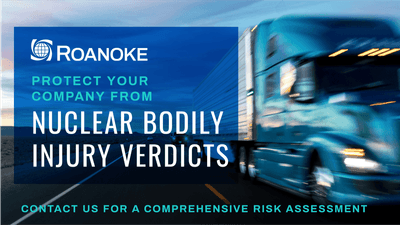June 20, 2014 | Industry Insights
The Importance of Warehouse Legal Liability Insurance

The Importance of Warehouse Legal Liability Insurance
Under the United States Uniform Commercial Code (UCC), a warehouse owner assumes responsibility for the materials they store for others for a fee. If a facility experiences a loss and a customer’s goods were damaged, the warehouse owner can be held liable for failure to exercise due care over their possessions. Warehousing claims may arise from theft, fire, flood, lack of refrigeration, roof collapse, missing inventory, damage during handling, insufficient facility maintenance, trailer theft and a number of other causes.
That’s where Warehouse Legal Liability Insurance steps in. This coverage provides protection in the event that negligence on the part of the warehouse results in damage to someone else’s property. A policy can be designed to cover the costs to defend the company against claims and pay settlements rendered against the company based on the policy terms.
What’s important to understand is that not all policies are the same and necessitate the expertise of a professional that understands bailment liability. For example, although defense costs are often a substantial expense when presented with a claim for loss or damage, not all insurance policies include these costs as part of the coverage. In some cases, coverage is included but limited to a low percentage of the policy insurance limit. Debris removal is another cost sometimes incurred by the warehouse operator or bailee. This represents the cost to have damaged property contained, removed from the storage premise, and properly disposed.
Additionally, it’s critical to have a complete understanding of the contractual agreements through which your warehousing services are provided and the limitations on recovery that can be associated with such warehousing agreements, bills of lading, warehouse receipts and invoices issued for the goods stored. Even if you think you are not responsible for property in your care, custody, or control due to the agreement or receipt, you may find yourself indeed liable. For example, “Acts of God” are often listed as an absolute exclusion in an agreement. This makes sense as a warehouse operator or other bailee is not able to control such forces of nature (earthquake, hurricane, windstorm, etc.). Yet, there are circumstances where liability may be imposed. If you had warning of an impending loss and could have taken reasonable steps to avoid it from happening, you may be found liable. To illustrate this point, suppose a warehouse is located along a river in an area prone to flooding from hurricanes and the ground floor had been flooded previously causing damage to cargo stored there. You could be found negligent if you hadn’t moved the cargo to a higher floor or alternative location when warned of an approaching hurricane. In this situation, with Warehouse Legal Liability insurance, you’d have coverage for the damaged cargo. The policy would respond due to failure to exercise proper care.
Of course, also important is establishing safeguards in your facility to protect against losses, which we will discuss in a future article. This may include storing goods on solid shelving, storing electronic equipment in a climate-controlled area, and screening employees thoroughly to avoid internal theft.
At Roanoke Trade, our professional staff can analyze your specific exposures to determine what you need in terms of Warehouse Legal Liability coverage. Give us a call at 1.800.ROANOKE to discuss your specific coverage requirements.













